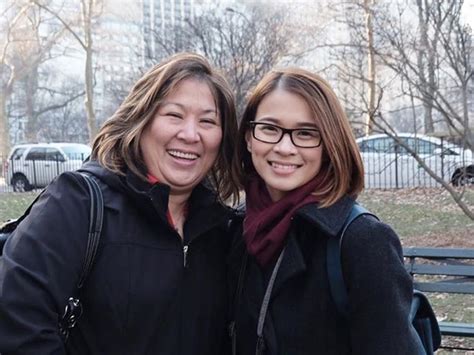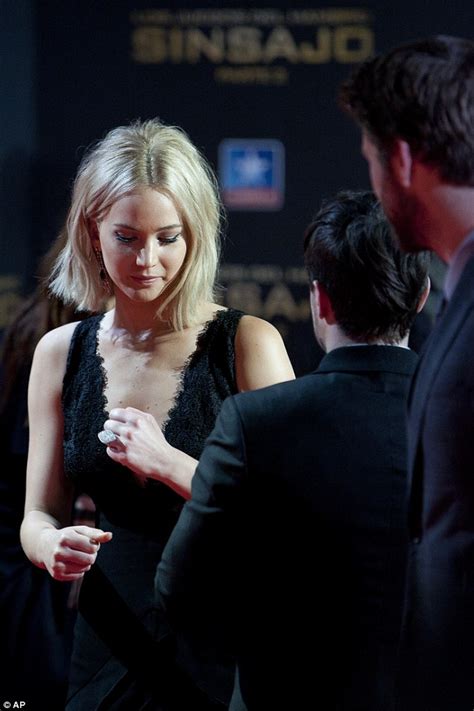
Mariah Carey, in a recent interview, reiterated her long-held aversion to acknowledging the passage of time, famously stating, “I don’t acknowledge years, darling. I just don’t. I don’t believe in that.” This perspective, bordering on a personal philosophy, was further elaborated upon as Carey discussed her deliberate disconnect from traditional age-related milestones and societal expectations regarding aging. The singer, songwriter, and actress, known for her five-octave vocal range and chart-topping hits, has consistently maintained this stance throughout her career, framing it as a means of self-preservation and creative freedom.
Carey’s comments, stemming from an interview discussing her broader approach to life and career longevity, shed light on the star’s strategy for navigating the pressures of the entertainment industry and maintaining a sense of personal autonomy. This approach involves consciously distancing herself from the constraints of time and the expectations it often imposes, allowing her to remain creatively vibrant and connected to her artistic vision.
The “Fantasy” singer’s approach isn’t simply about vanity, but about a deeper understanding of self-perception and control. Carey, who has been in the public eye since the early 1990s, has witnessed firsthand the industry’s relentless focus on youth and its tendency to pigeonhole artists based on age. By consciously rejecting the conventional markers of time, she aims to subvert these expectations and maintain agency over her own narrative. This, she implies, is not about denying reality, but about redefining it on her own terms. It’s a conscious choice to prioritize inner vitality and creative output over externally imposed timelines.
Carey’s stance aligns with a broader cultural conversation around aging and self-perception. Many public figures, particularly women in the entertainment industry, face intense scrutiny regarding their appearance and age. Carey’s open defiance of these norms resonates with audiences who are increasingly questioning the traditional benchmarks of success and beauty.
Furthermore, Carey’s philosophy extends beyond personal preferences and touches on the broader implications of societal pressure. She implicitly critiques the way society often equates age with decline, suggesting that such a mindset can be limiting and ultimately detrimental to creative expression. By refusing to participate in this narrative, she offers an alternative perspective, one that emphasizes inner strength and resilience.
This carefully constructed persona, where time is an irrelevant construct, allows Carey to maintain a sense of control over her public image and artistic output. It’s a deliberate act of self-preservation in an industry that often demands conformity. The icon’s enduring success is a testament to her ability to navigate the industry on her own terms, defying expectations and maintaining relevance through decades of shifting trends.
Carey’s remarks serve as a reminder that aging is a subjective experience, one that can be shaped by individual choices and perspectives. Her refusal to acknowledge the constraints of time is not merely a quirky eccentricity but a powerful statement about self-determination and the importance of maintaining one’s own narrative in the face of societal pressures. This refusal has solidified her iconic status, distinguishing her as an artist who consistently challenges conventions and embraces her unique identity.
The interview also touched upon Carey’s upcoming projects, further highlighting her commitment to ongoing creative endeavors. This reinforces the idea that her focus remains firmly on the future, rather than dwelling on the past. By actively pursuing new opportunities, she demonstrates that her artistic vision remains undimmed by the passage of time. This continued engagement with her craft serves as a powerful counterpoint to the notion that age diminishes creativity.
In a world obsessed with quantifying and categorizing, Mariah Carey’s refusal to acknowledge time is a refreshing act of rebellion. It’s a statement that resonates with anyone who has ever felt constrained by societal expectations. It’s a reminder that we all have the power to define our own realities and to live life on our own terms. Her perspective, though unconventional, offers a powerful message of self-empowerment and the importance of embracing individuality.
The singer’s deliberate approach to time also reflects a broader trend of self-care and mental wellbeing. By prioritizing her own needs and rejecting external pressures, Carey demonstrates a commitment to maintaining a healthy and balanced lifestyle. This emphasis on self-preservation is particularly important in the high-pressure environment of the entertainment industry, where burnout and mental health issues are prevalent.
Carey’s comments have sparked a wide range of reactions, from amusement to admiration. Some critics have dismissed her stance as a superficial attempt to maintain a youthful image, while others have praised her for challenging ageist stereotypes. Regardless of individual interpretations, her words have undoubtedly ignited a conversation about the complexities of aging and the importance of self-perception.
Her perspective, while perhaps unconventional, is undeniably authentic. Carey has consistently maintained this stance throughout her career, demonstrating a genuine commitment to her own personal philosophy. This consistency reinforces the idea that her refusal to acknowledge time is not merely a publicity stunt but a deeply ingrained aspect of her identity.
In conclusion, Mariah Carey’s perspective on time is more than just a personal quirk; it’s a statement about self-empowerment, creative freedom, and the importance of defying societal expectations. Her unwavering commitment to this philosophy has solidified her status as an icon and continues to inspire fans around the world. By refusing to be defined by the passage of time, she has carved out her own unique space in the entertainment industry and continues to thrive on her own terms. Her story serves as a powerful reminder that age is just a number and that true success lies in embracing one’s individuality and pursuing one’s passions with unwavering determination. This bold and unapologetic approach to life is what truly defines Mariah Carey’s enduring appeal.
Expanded Context and Analysis:
Mariah Carey’s consistent refusal to acknowledge time and age represents a multifaceted strategy for maintaining relevance, controlling her narrative, and challenging societal expectations within the entertainment industry. Understanding the nuances of this approach requires examining the context of her career, the pressures faced by female artists in the public eye, and the broader cultural conversation surrounding aging and self-perception.
Firstly, Carey’s career trajectory is marked by both immense success and periods of intense scrutiny. Rising to fame in the early 1990s, she quickly became a global superstar, dominating the charts with her exceptional vocal range and catchy melodies. However, she also faced significant personal and professional challenges, including struggles with her mental health and periods of critical backlash. This history has likely contributed to her desire to control her own narrative and protect herself from external pressures.
The entertainment industry is notorious for its emphasis on youth and its tendency to marginalize older artists, particularly women. Actresses and singers often face pressure to maintain a youthful appearance and may find it difficult to secure roles or recording contracts as they age. This reality has led many female artists to adopt various strategies for combating ageism, from cosmetic surgery to reinventing their image. Carey’s approach, while unique, can be seen as part of this broader effort to resist the industry’s ageist norms.
Carey’s refusal to acknowledge time can be interpreted as a form of self-preservation. By consciously distancing herself from the conventional markers of age, she is able to maintain a sense of personal autonomy and avoid being defined by external expectations. This allows her to remain creatively vibrant and connected to her artistic vision, without being constrained by the industry’s obsession with youth.
Moreover, Carey’s stance can be seen as a challenge to the broader cultural conversation surrounding aging. In many societies, age is often associated with decline and obsolescence. This mindset can be particularly damaging for individuals in the public eye, who are constantly subjected to scrutiny and comparison. By refusing to participate in this narrative, Carey offers an alternative perspective, one that emphasizes inner strength, resilience, and the importance of embracing individuality.
Her consistent messaging on this topic is crucial. It’s not a one-off statement but a recurring theme in her interviews and public appearances. This reinforces the idea that it’s a deeply held belief, not just a superficial attempt to garner attention. This consistency builds authenticity and allows fans to connect with her on a deeper level. They understand that she’s not just saying it; she genuinely believes it.
The power of this message also lies in its simplicity. “I don’t believe in that” is a direct and unambiguous statement. It’s easily understood and resonates with people who feel similarly constrained by societal expectations. It’s a form of rebellion against the norm, and people are often drawn to those who dare to challenge the status quo.
Furthermore, Carey’s successful career trajectory provides evidence that her approach is effective. Despite being in the industry for over three decades, she continues to release new music, tour extensively, and maintain a strong public presence. This demonstrates that it is possible to defy ageist expectations and remain relevant by staying true to oneself and focusing on one’s creative passions.
The impact of Carey’s stance extends beyond her personal life and career. By openly challenging ageist norms, she is contributing to a broader cultural shift towards greater acceptance and appreciation of aging. Her message empowers individuals to embrace their own unique journeys and to resist being defined by external pressures. This is particularly important for younger generations, who are growing up in a world that is increasingly obsessed with youth and beauty.
It’s also important to consider the role of humor in Carey’s approach. While her refusal to acknowledge time is undoubtedly a serious matter, she often presents it with a playful and self-deprecating tone. This allows her to connect with audiences on a more personal level and to avoid coming across as arrogant or out of touch. The humor also makes her message more accessible and relatable, encouraging people to embrace their own eccentricities and to not take themselves too seriously.
In addition to challenging ageism, Carey’s stance can also be seen as a form of empowerment for women in particular. Women often face greater pressure than men to conform to societal expectations regarding age and appearance. By defying these expectations, Carey is setting an example for other women to embrace their own individuality and to resist being defined by external standards.
Her influence is undeniable. Many artists have followed in her footsteps, adopting similar strategies for maintaining relevance and challenging ageist norms. This demonstrates the power of her message and its potential to inspire positive change within the entertainment industry and beyond.
Ultimately, Mariah Carey’s perspective on time is a complex and multifaceted issue that reflects her unique experiences, her deep understanding of the entertainment industry, and her commitment to self-empowerment. By refusing to acknowledge the constraints of age, she is not only preserving her own sense of personal autonomy but also contributing to a broader cultural conversation about aging, self-perception, and the importance of embracing individuality. Her enduring success is a testament to the power of this approach and its ability to inspire and empower others.
Carey’s strategy for defying time isn’t just about ignoring the calendar. It involves:
- Controlling her image: She carefully curates her public appearances and social media presence to project an image of timeless glamour and energy.
- Staying creatively active: She consistently releases new music, tours, and participates in other projects, demonstrating that she is still a relevant and vibrant artist.
- Maintaining a strong connection with her fans: She actively engages with her fans through social media and live performances, fostering a sense of loyalty and connection.
- Surrounding herself with a supportive team: She relies on a team of professionals who understand her vision and help her to achieve her goals.
- Prioritizing self-care: She understands the importance of maintaining a healthy and balanced lifestyle, which includes prioritizing her mental and physical well-being.
By implementing these strategies, Carey has successfully defied the ageist expectations of the entertainment industry and maintained her status as a global icon. Her story is a testament to the power of self-belief, creative vision, and a commitment to living life on one’s own terms.
Frequently Asked Questions (FAQ):
-
Why does Mariah Carey say she doesn’t acknowledge years?
- Mariah Carey states she doesn’t acknowledge years as a personal philosophy to avoid societal pressures and expectations associated with aging, which she believes can be limiting, particularly within the entertainment industry. It’s a method of self-preservation and maintaining creative freedom, as she stated, “I don’t acknowledge years, darling. I just don’t. I don’t believe in that.” This allows her to focus on her inner vitality and creative output rather than external timelines.
-
Is Mariah Carey’s refusal to acknowledge time just a publicity stunt?
- While some may view it as such, Carey’s consistent stance on this matter throughout her career suggests it’s a deeply held belief rather than a mere publicity stunt. Her actions and continuous reaffirmation of this philosophy point towards an authentic approach to self-perception and defying societal norms related to aging. The continued success she has seen would be very difficult to generate and maintain without the underlying authenticity.
-
How does Mariah Carey’s perspective on aging relate to the pressures faced by women in the entertainment industry?
- The entertainment industry often places immense pressure on women to maintain a youthful appearance. Carey’s defiance of traditional age markers can be seen as a direct response to these pressures, allowing her to control her narrative and resist being defined by ageist standards. It empowers her to prioritize her creative vision and personal well-being over conforming to industry expectations.
-
What impact does Mariah Carey’s stance have on her fans and the broader culture?
- Carey’s refusal to acknowledge time serves as an inspiration to fans and others who feel constrained by societal expectations. It promotes self-empowerment and the importance of embracing individuality. By challenging ageist norms, she encourages a broader cultural shift towards acceptance and appreciation of aging as a subjective and personal experience, not something to be feared or ashamed of.
-
Beyond just ignoring age, what strategies does Mariah Carey employ to maintain her relevance and defy time in the entertainment industry?
- Carey employs various strategies, including carefully curating her public image, staying creatively active with new music and performances, maintaining a strong connection with her fans, relying on a supportive team, and prioritizing self-care. These combined efforts allow her to defy ageist expectations and maintain her status as a global icon by ensuring her continued artistic output and controlling her personal narrative.
-
How does Mariah Carey’s approach to time differ from other celebrities who try to maintain a youthful image?
Mariah Carey’s approach differs significantly from other celebrities through her explicit verbal rejection of the concept of time and age as relevant metrics in her life and career. While other celebrities might pursue cosmetic procedures, specific diets, or exercise regimens to appear youthful, Carey directly addresses the societal expectations surrounding aging with statements like, “I don’t acknowledge years, darling. I just don’t. I don’t believe in that.” This direct refusal to engage with age-related discussions sets her apart, emphasizing a mental and philosophical detachment rather than solely relying on physical appearances. Her focus is on maintaining creative vitality and personal freedom from constraints, making her strategy more about inner self-perception than external validation.
- What role does humor play in Mariah Carey’s public persona and her views on aging?
Humor is an essential component of Mariah Carey’s public persona and her views on aging. It allows her to address a serious issue like societal ageism in a lighthearted, approachable manner, softening potentially confrontational messages. By using humor, she connects with her audience on a personal level, making her views relatable and less intimidating. The playful and self-deprecating tone helps her avoid seeming arrogant or out of touch, reinforcing the idea that her rejection of time is more about personal empowerment and less about superficial vanity. This humorous approach makes her message more palatable and widens its appeal.
- How has Mariah Carey’s personal history and past experiences contributed to her current perspective on time and aging?
Mariah Carey’s personal history, filled with both immense success and significant challenges, has deeply shaped her perspective on time and aging. Her early rise to fame in the 1990s, followed by scrutiny and periods of mental health struggles, has led her to prioritize self-preservation and control over her narrative. Witnessing the entertainment industry’s relentless focus on youth has likely influenced her to distance herself from age-related expectations, fostering a desire to remain creatively vibrant and autonomous. By controlling her image and rejecting traditional age markers, Carey aims to subvert industry norms and maintain agency over her artistic journey, making her past experiences integral to her present outlook.
- In what ways does Mariah Carey’s focus on inner vitality contrast with society’s typical emphasis on external appearances as one ages?
Mariah Carey’s emphasis on inner vitality directly contrasts with society’s common focus on external appearances as one ages. While society often values youthfulness through physical appearance, Carey prioritizes her creative energy, mental well-being, and personal freedom. This contrast highlights a shift in perspective where self-worth and relevance are not tied to physical metrics, but rather to ongoing creative output and a strong sense of self. By focusing on inner vitality, Carey challenges the societal norm that equates aging with decline, instead promoting a view of continuous growth and empowerment regardless of age.
- Considering her influence, what long-term effects could Mariah Carey’s views on aging have on future generations of artists and the broader entertainment industry?
Mariah Carey’s views on aging could have profound long-term effects on future generations of artists and the broader entertainment industry. Her unapologetic defiance of ageism sets a precedent for artists to prioritize authenticity and creative vision over conforming to youth-obsessed industry standards. By demonstrating that success and relevance are not tied to age, she empowers younger artists to resist external pressures and cultivate a more resilient and sustainable career. This shift could lead to a more diverse and inclusive industry, where talent and experience are valued over fleeting youthfulness, ultimately fostering a more supportive environment for artists of all ages.
- How does Mariah Carey balance her desire to control her narrative with the public’s inevitable interest in her personal life and aging process?
Mariah Carey balances her desire to control her narrative with public interest by carefully curating her public appearances and communications. While acknowledging the public’s curiosity about her personal life, she strategically shares aspects that align with her message of self-empowerment and creative independence, while maintaining boundaries to protect her mental and emotional well-being. Her consistent messaging about rejecting age constraints helps shape the narrative, framing discussions about her aging process as a testament to her strength and resilience rather than a source of vulnerability. This approach allows her to engage with fans and the media while staying true to her personal philosophy and maintaining agency over her public image.
- To what extent does Mariah Carey’s cultural background (as a biracial woman) influence her perspective on societal expectations and her refusal to conform?
Mariah Carey’s cultural background as a biracial woman significantly influences her perspective on societal expectations and her refusal to conform. Growing up navigating different cultural identities, she has likely experienced firsthand the constraints and biases imposed by societal norms. This background equips her with a unique awareness of marginalization and a heightened sensitivity to restrictive expectations. Her refusal to conform to ageist standards can be seen as an extension of this broader resistance to being defined or confined by any singular identity or expectation, allowing her to carve out her own path and define success on her own terms.
- In what ways does Mariah Carey’s branding and image strategy reflect her overall philosophy of defying time and conventional expectations?
Mariah Carey’s branding and image strategy are meticulously crafted to reflect her philosophy of defying time and conventional expectations. Her branding emphasizes timeless glamour, strength, and resilience, often featuring her in elegant and sophisticated settings that transcend current trends. Image-wise, she focuses on presenting a vibrant and energetic persona, both in her performances and public appearances. She strategically uses her personal style and artistic expressions to convey a sense of timelessness, subtly resisting ageist expectations by showcasing her enduring talent and beauty without adhering to temporary fads. This cohesive branding strategy reinforces her message of independence and self-empowerment, solidifying her iconic status.
- How does Mariah Carey’s continued success impact the broader conversation about ageism and the longevity of careers in the music industry?
Mariah Carey’s sustained success significantly impacts the broader conversation about ageism and the longevity of careers in the music industry. By remaining relevant and successful over several decades, she challenges the industry’s tendency to favor youth, proving that talent and hard work can transcend age. Her continued presence at the top inspires other artists to prioritize their craft and maintain a strong sense of self, defying expectations and redefining what it means to have a lasting career in music. She serves as a tangible example that counters ageist narratives, encouraging both artists and industry executives to value experience, dedication, and artistic evolution over fleeting trends.
- What can individuals outside the entertainment industry learn from Mariah Carey’s approach to aging and self-perception?
Individuals outside the entertainment industry can learn valuable lessons from Mariah Carey’s approach to aging and self-perception. Her emphasis on inner vitality, personal freedom, and defiance of societal expectations is universally applicable. We can adopt her focus on self-care, creative expression, and embracing individuality to navigate our own lives with greater confidence and authenticity. By challenging limiting beliefs about aging, prioritizing our well-being, and defining success on our own terms, we can cultivate more fulfilling and resilient lives, regardless of societal pressures. Carey’s message reminds us that age is just a number, and true empowerment comes from embracing our unique journey and living life on our own terms.









